Who we are
Dryad is an open data publishing platform and a community committed to the open availability and routine re-use of all research data.
Our vision is for a future in which the open availability and routine reuse of all research data enables the acceleration of discovery across domains and the translation of research into benefits for society worldwide. We advance our vision through our mission: to enable the open publication and routine reuse of all research data.
Our multi-stakeholder community of academic and research institutions, research funders, scholarly societies and publishers is committed to leading in best practices for open data sharing and reuse. They invest in Dryad for the curation, open sharing and reuse of research data in all fields.
We value responsibility, inclusion, openness and trustworthiness:
- We are mindful that our decisions can impact the health of the research community and the environment and we assume responsibility for considering the implications of our actions in advance.
- We strive to overcome barriers to participation by individuals and organizations within the global research community.
- We invest in open practices in research and in our organization to promote integrity, trust, collaboration and progress.
- Our obligation as a trusted partner to research is to ensure that the interests of the research community remain our focus, that data are available to evidence new research, that data published with us persist, and that our organization and service are sustainable and available to support research so long as we are valued. Dryad is a signatory to the Principles of Open Scholarly Infrastructure (POSI).
In all of our convenings we are committed to abiding by our Code of conduct.
Get to know Dryad
Dryad partners are part of a global non-profit community working together to promote data curation, publication, and preservation across all scientific disciplines. Partners sponsor the cost of Dryad services for affiliated researchers at a reduced rate, and receive access to our administrative dashboard, as well as support, training, and outreach. Partnership is open to all organizations, including institutions, publishers, academic societies, and others. Learn more about partnering with Dryad.
We’re enormously proud of our current partnerships, which include the following organizations:
Academic and research institutions
- Australian Wine Research Institute
- Charles R. Drew University of Medicine and Science
- Claremont College Services (TCCS)
- Claremont Graduate University
- Claremont McKenna College
- Colorado State University
- Desert Research Institute
- Grand Valley State University
- Harvey Mudd College
- Keck Graduate Institute
- King Abdullah University of Science and Technology
- Lawrence Berkeley National Laboratory
- Macalester College
- Massachusetts Institute of Technology
- Montana State University
- National Institute on Deafness and Other Communication Disorders
- New York Institute of Technology
- North Carolina State University
- Northeast Ohio Medical University
- Pitzer College
- Pomona College
- Scripps College
- Southern Illinois University Carbondale
- Stanford University, Lane Medical Library
- Stony Brook University
- Temple University
- The Ohio State University
- The University of Sheffield
- The University of Tennessee, Knoxville
- University at Buffalo
- University of Arkansas at Fayetteville
- University of California, Berkeley
- University of California, Davis
- University of California, Irvine
- University of California, Los Angeles
- University of California, Merced
- University of California, Office of the President
- University of California, Riverside
- University of California, San Diego
- University of California, San Francisco
- University of California, Santa Barbara
- University of California, Santa Cruz
- University of Maryland, College Park
- University of Nevada, Reno
- University of New Mexico
- University of Oklahoma
- University of Oregon
- University of Pennsylvania
- University of Washington
- University of Wisconsin–Madison
- Victoria University, Melbourne
- Wayne State University
- West Virginia University
Publishing organizations
- The Alliance of Crop, Soil and Environmental Science Societies
- American Association for the Advancement of Science
- American Chemical Society
- American Finance Association
- American Genetic Association
- American Medical Informatics Association
- American Ornithological Society
- American Society of Plant Taxonomists
- Association for Tropical Biology and Conservation
- British Ecological Society
- Canadian Science Publishing
- Ecological Society of America
- eLife
- European Respiratory Society
- European Society for Evolutionary Biology
- Federation of American Societies for Experimental Biology
- Federation of European Biochemical Societies
- International Society for Behavioral Ecology
- John Wiley & Sons, Inc
- Nordic Society Oikos
- Oxford University Press
- The Palaeontological Association
- The Paleontological Society
- PLOS
- Rockefeller University Press
- Royal Entomological Society
- The Royal Society
- Society for the Study of Evolution
- Society of Systematic Biologists
We wish to express our enduring gratitude to our founding partners:
- American Association for the Advancement of Science (AAAS)
- American Genetic Association (AGA)
- American Society of Naturalists
- Association for Tropical Biology and Conservation (ATBC)
- Biological Journal of the Linnean Society
- BioMed Central
- British Ecological Society
- BMJ Open
- Ecology Letters, Centre National de la Recherche Scientifique
- Ecological Society of America
- European Society for Evolutionary Biology (ESEB)
- Evolutionary Applications
- Genetics Society
- Journal of Paleontology and Paleobiology, The Paleontological Society
- Molecular Biology and Evolution, Society for Molecular Biology and Evolution
- Molecular Ecology
- Molecular Ecology Resources
- Nordic Society Oikos
- Oxford University Press (OUP)
- Pensoft Publishers
- PLOS (Public Library of Science)
- Society for the Study of Evolution
- The Royal Society
- Society of Systematic Biologists
- US Fish and Wildlife Service
- John Wiley & Sons, Inc
Dryad is a not-for-profit membership organization, recognized as a 501(c)3 by the U.S. Internal Revenue Service. Dryad members nominate and elect the Board of Directors, twelve individuals from the stakeholder community who provide strategic planning, fiscal oversight, and oversee the position of the Executive Director. Members also approve any amendments to the organization’s bylaws, have the opportunity to steer policies and features, and are kept abreast of emerging issues in data publishing. Dryad Board terms rotate in October every year.
Our Code of conduct applies for all Dryad community spaces.
Current board members
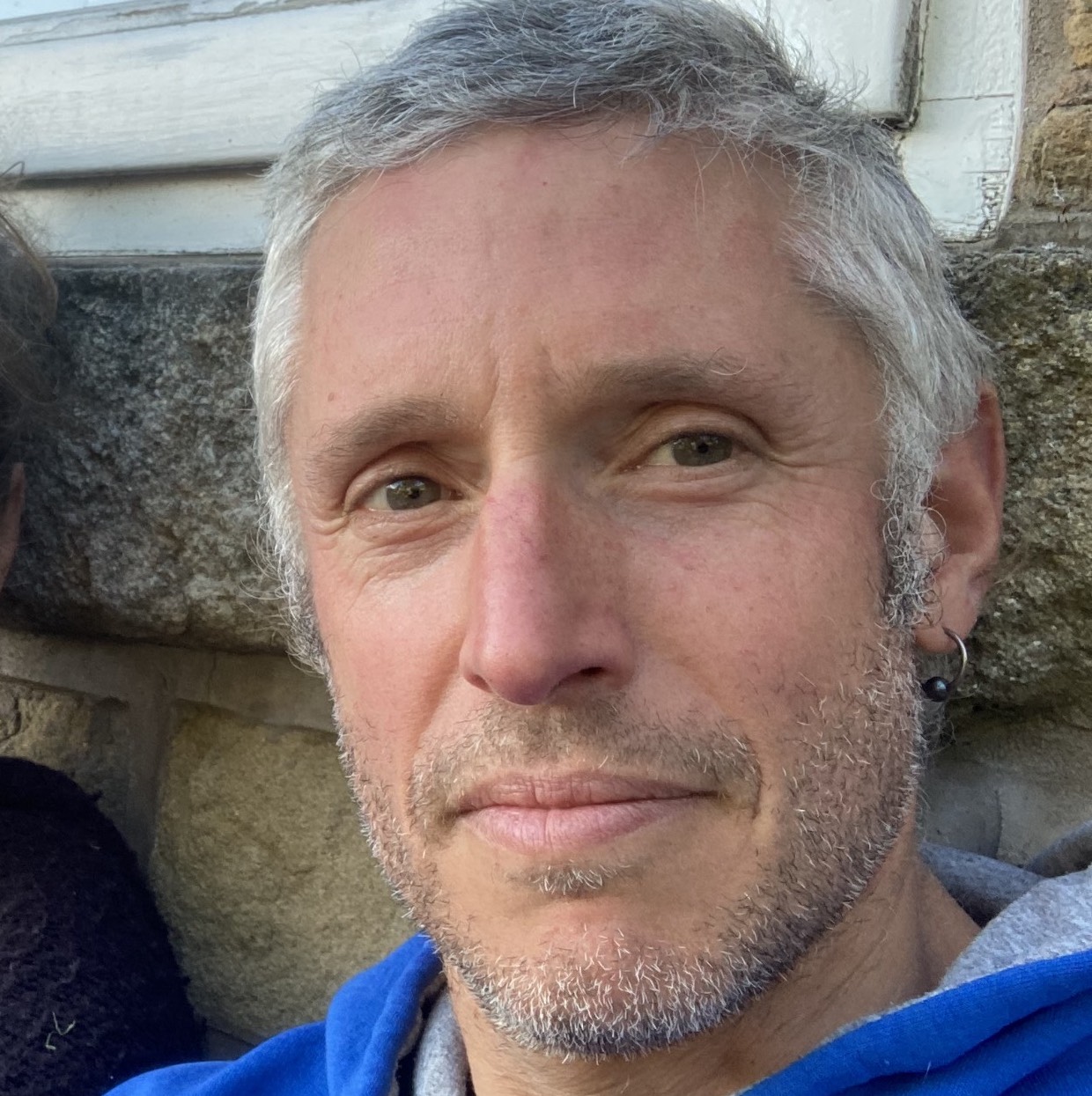
Andrew Beckerman (2022-2028)
is a Professor of Evolutionary Ecology at the University of Sheffield where he collaborates with his team on questions about the impacts of climate and environmental change on biodiversity. They are passionate and curious about the landscape of open science. He is on the University of Sheffield School of Bioscience Executive Board and has recently been appointed to the University Council Finance Committee. Andrew has been co- Editor-in-Chief for the Wiley Open Access journal Ecology and Evolution for over 10 years. He has provided strategic contributions to the British Ecological Society for more than a decade as former Chair of Meetings and member of the Management Board and more recently via the Publications committee. Andew is also currently the Chair of Governors for a local primary school providing strategic support to the senior leadership team on finance, infrastructure and curriculum.
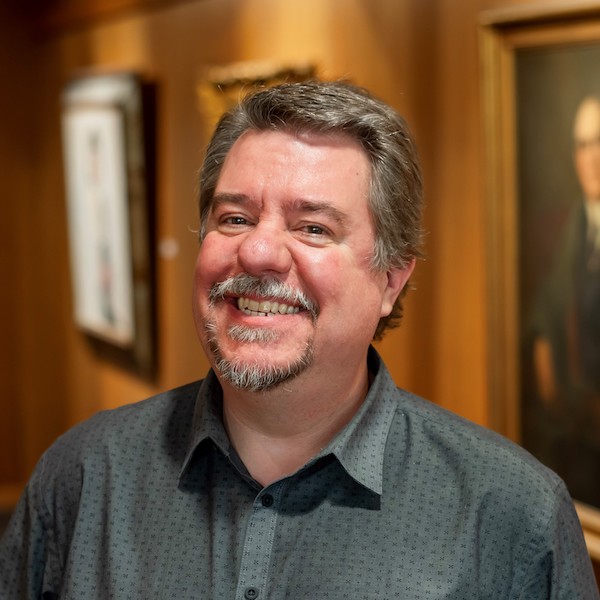
Jake Carlson (2023-2026)
is the Associate University Librarian for Research, Collections and Outreach at the University at Buffalo (UB) Libraries. His responsibilities include increasing the capabilities of the UB Libraries to respond to researchers’ needs with managing, sharing and preserving their research data. Dryad will be a critical resource in the Libraries’ research data services program. Previously, he has been the Director of Deep Blue Repository and Research Data Services at the University of Michigan and a Data Services Specialist at Purdue University. Carlson has authored or co-authored more than 30 articles on research data services in libraries. His work has been supported by funding from the National Science Foundation (NSF), the Alfred P. Sloan Foundation, and the Institute for Museum and Library Services (IMLS).

Andrea Chiarelli (2025-2028)
is an Associate Director at Research Consulting Limited, a mission-driven consultancy dedicated to improving the effectiveness and impact of research and scholarly communication across the global academic landscape. Andrea serves as a trusted advisor to a diverse portfolio of clients spanning research organizations, non-profits, research funders, infrastructure providers, and academic publishers. His work focuses on helping organizations develop sustainable strategies in the context of the transition to open science. He holds a PhD in Civil Engineering from the University of Nottingham, an MSc in Nuclear and Energy Engineering from the Polytechnic University of Turin, Italy, and an Executive Master of Business Administration (EMBA) from Nottingham Trent University. Andrea is a Fellow of the Chartered Management Institute (CMgr FCMI).
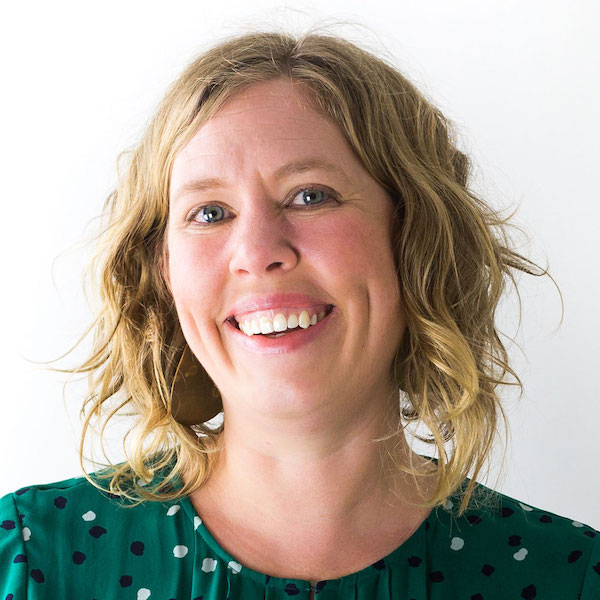
Bekah Darksmith (2023-2026)
joined PLOS as its Chief Marketing & Communications Officer in February 2018 to lead strategic development and management of outreach, marketing, and communications. Over the past 20 years, she has worked across academic, not‐for‐profit, and commercial publishing markets, with the bulk of her career spent at the University of California Press in progressively senior roles. Bekah most recently served UC Press in a dual capacity. As its Deputy Director, she developed strategy and oversaw operations for all revenue-generating functions within the organization — marketing, sales, rights and licensing as well as fundraising. As the Executive Director of the UC Press Foundation, she was responsible for driving philanthropic support for UC Press through engagement with its Board of Trustees and administration of the organization’s endowment.
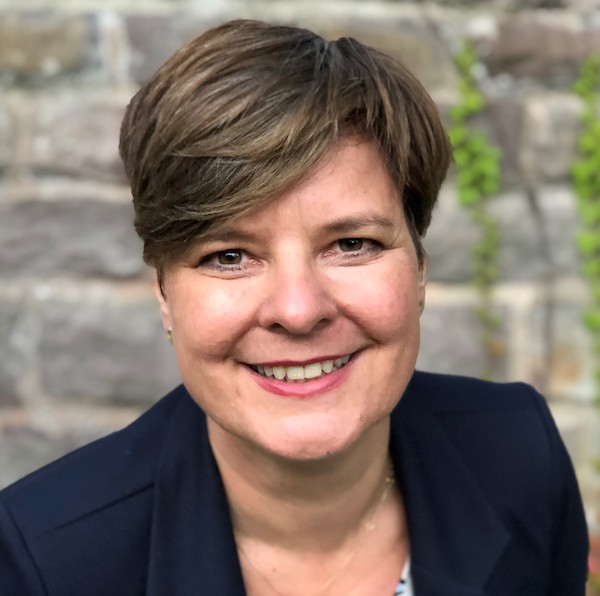
Barbara Ebert (2022-2028)
is Executive Secretary, German Federation for Biological Data e.V. (GFBio). GFBio e.V. is a non-profit association founded in 2016 as the legal entity for the sustainable operation of data services in Biodiversity research. It is active in the recently founded National Research Data Infrastructure (NFDI) in Germany. Starting October 2020 we are building a coordination team for the NFDI4BioDiversity consortium, and a pool of IT developers to mobilise data available at the partner organisations and feed them into a common data infrastructure.

Scott Edmunds (2022-2025)
is Editor-in-Chief for GigaScience, a self-proclaimed data nerd, and an Executive Committee member for Open Data Hong Kong. He has co-founded Citizen Science organisations Bauhinia Genome and CitizenScience.Asia and also teaches data management and curation at Hong Kong University. His academic background includes training in Biochemistry at Imperial College and a PhD on the Molecular Pathology of Ocular Melanoma at the Royal London Hospital, where his research mainly focused on Cancer Cell and Molecular Biology. After postdoctoral positions on Cancer Molecular Pathology at the WHO International Agency for Research in Cancer in Lyon and Institute of Cell and Molecular Sciences in London (Queen Mary) he was senior scientific editor for the BMC Genomics and Bioinformatics journals at BioMed Central before moving in 2010 to Shenzhen/Hong Kong to set up the GigaScience journal and GigaDB database for the BGI (the world’s largest genomic organisation). Working with the British Library and DataCite, GigaScience published its first data (the genome of the deadly German outbreak strain of E. coli) in June 2011.
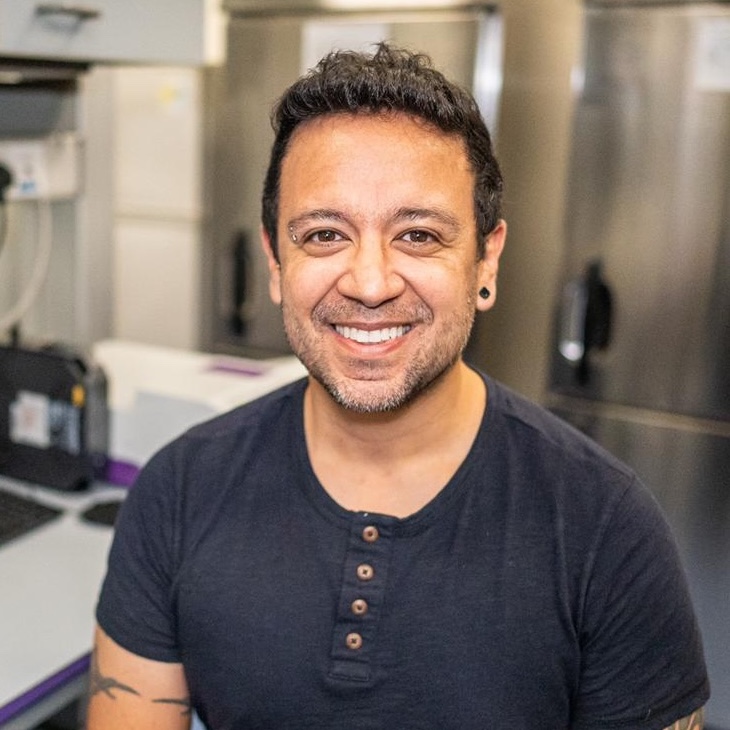
Juan Diego Gaitan-Espitia (2025-2028)
is a marine biologist from Colombia with a PhD in Evolutionary Ecology from the Austral University of Chile. Since 2018, he has been an Assistant Professor at the School of Biological Sciences at The University of Hong Kong. JD is actively involved in research, knowledge exchange, and academic activities, including mentoring early-career researchers and promoting equality, diversity, and inclusion in science and education. He has served on editorial boards for journals such as Proceedings of the Royal Society B, Journal of Thermal Biology, Journal of Evolutionary Biology, and Evolution. JD has contributed to university training programs focused on best practices for open and reproducible scientific research. He has been invited to governmental and international advisory panels to facilitate knowledge exchange and translational research on climate change.

Brooks Hanson (2022-2025)
serves as the Executive Vice President for Science for the American Geophysical Union (AGU). He’s responsible for overseeing AGU’s publications, meetings, and ethics programs and Thriving Earth Exchange and coordinating science activities across these. He served previously as Sr. Vice President for Publications at AGU, responsible for AGU’s portfolio of many books and 20 journals and their editorial operations, helping set overall editorial policies, and leading future developments. Before arriving at AGU, he served as the Deputy Editor for Physical Sciences at Science and earlier as an editor at Science. Brooks has a Ph.D. in Geology from UCLA and held a post-doctoral appointment at the Department of Mineral Sciences, Smithsonian Institution. His main areas or research and publications span the tectonics of the western U.S., metamorphic petrology, modeling magmatic and hydrothermal processes, and on scholarly publishing. He is a fellow of the Geological Society of American and Mineralogical Society of America.
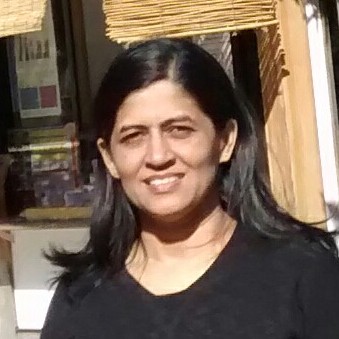
Devika Madalli (2022-2028)
is a Professor of the Documentation Research and Training Centre, Indian Statistical Institute (faculty since 1996), India and Adjunct faculty, DISI, University of Trento, Italy. Her interest lies in the area of OERs and Educational resources repositories, Open Data Repositories and Data Management, Knowledge Organization and application of facetization in Information Systems, Information Infrastructures, Digital Libraries, Semantic Web technologies, Faceted Ontologies, Content Management System, Agrisemantics, multilingual information services. She is a member of the Karnataka Evaluation Authority(KEA). Dr.Madalli has extensive experience in capacity building, training on e-learning, MOOCs (moodle) and digital repositories. Dr. Madalli is a member of the Technical Advisory Board of Research Data Alliance and Prof.Madalli is a founding member of and served as the co-chair of the Agriculture Data Interest Group [IGAD], Research Data Alliance [RDA][2013-2016] and present co-chair of the Global Research Commons and RDA for UNSDGs Interest groups.
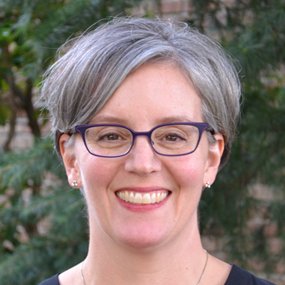
Jenny Muilenburg (2023-2026)
is the Research Data Services Librarian at University of Washington Libraries. In addition to leading the Libraries Data Services Team and facilitating the integration of research data support throughout UW schools and departments, Jenny also works with campus partners to create education and outreach around funder development and mandates. She promotes collaboration and substantive partnerships with administration and other departments to enhance campuswide research support services. She is a past ARL Visiting Program Officer for Research Data, and a current institutional representative for HELIOS.
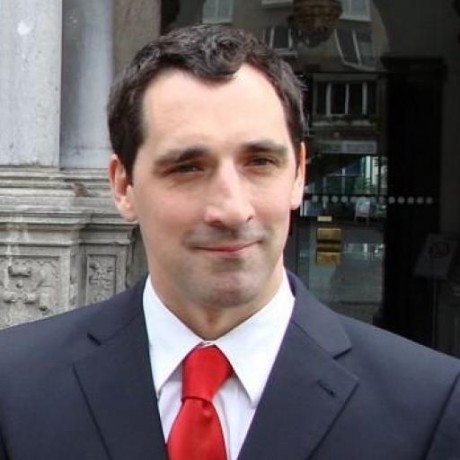
Ian Mulvany (2021-2026)
is CTO at BMJ where he leads teams that deliver the technologies and features that underpin new products as well as underlying publishing systems. He is responsible for leading on technology strategy for the company and understanding the implications of new and emerging technologies for the business. Previously he helped set up SAGE’s methods innovation incubator SAGE Ocean following a lean product development approach. Prior to SAGE he ran technology operations for eLife, was head of product for Mendeley and ran a number of early web2.0 products for Nature Publishing Group. Over that time he has gained a breadth of experience of modern product management practice, software engineering practice, program management and a deep understanding of the technical underpinnings of many scholarly communication systems. He collaborated in defining the extensions to the NLM DTD required to support software citation and was also one of the original organising members of the Altmetrics conference series that started in 2014.

Daniel Potter (2023-2026)
is Professor of Plant Sciences at UC Davis, where he has been a faculty member since 1996. His research and teaching interests are focused on angiosperm systematics (phylogeny, evolution, and taxonomy of flowering plants) and ethnobotany (the study of direct relationships between people and plants). Dan grew up in a rural area of the Hudson Valley of New York State where his interests in biology were fostered by walks in the woods around their house, parents who were avid gardeners and nature lovers, and the influence of several excellent teachers in elementary and high school. His specific interests in botany developed and solidified during his years as an undergraduate at Harvard (1978-1982) and a PhD student at Cornell (1984-1991), again due in no small part to several inspirational professors. Dan currently serves as director of the UC Davis herbarium, member of the board of directors of the Davis Botanical Society, president of the Yolo-Colusa Chapter of the California Native Plant Society, and editor-in-chief of Systematic Botany, the professional journal of the American Society of Plant Taxonomists.
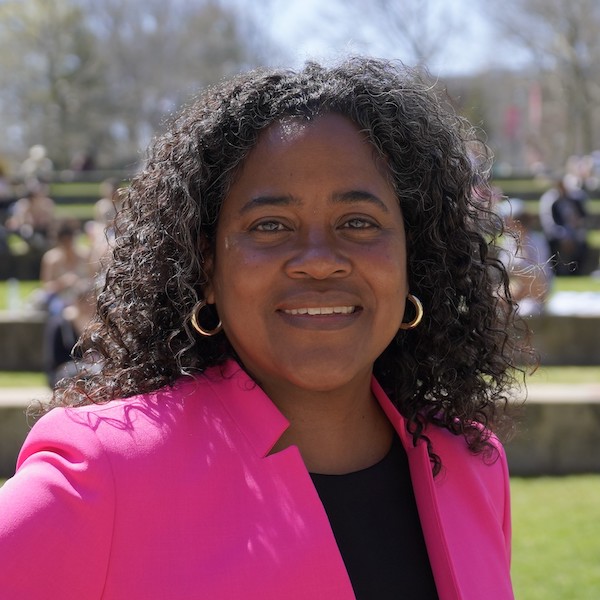
Mona Ramonetti (2023-2026)
is the Interim Associate Dean for Library Technologies, Discovery and Digital Services at Stony Brook University in New York. She manages a team of library technology faculty and staff in creating, implementing and overseeing the technology initiatives and infrastructure that support the Stony Brook University Library community. She also leads and manages policy, planning and implementation for Scholarly Communications initiatives that include data management, scholarly publishing, open educational resources, among others. She has chaired and served on numerous national and international committees and working groups such as FORCE 11, COAPI and SPARC. In addition to her role in promoting and sustaining an academic environment of openness and accessibility, she has demonstrated a strong commitment to advancing diversity, inclusion, equity and social justice within the academic environment. She has chaired and served on DEI committees and task forces where she creates and promotes spaces to address discrimination and inequity while fostering a culture of inclusivity and social justice. Outside of her academic work and accomplishments, she enjoys tennis, gardening and spending time with her husband, daughter, son and three dogs (Emma Wheatgerm, Punkin Chubacca and Nova Argentina).

Jason Williams (2023-2026)
is Assistant Director, External Collaborations at the Cold Spring Harbor Laboratory DNA Learning Center where he develops national biology education programs. Jason leads education, outreach, and training for CyVerse (US national cyberinfrastructure for the life sciences) and has trained thousands of students, researchers and educators in bioinformatics, data science, and molecular biology. Jason’s focus has been developing bioinformatics in undergraduate education and career-spanning learning for biologists. Jason’s “Reinventing Scientific Talent” proposal was a winning entry in the US National Science Foundation’s NSF 2026 Idea Machine search for the next set of “Big Ideas”; proposals that will shape funding priorities for the foundation. Jason is founder of LifeSciTrainers.org – a global effort to promote community of practice among professionals who develop short-format training for life scientists. Jason is also a member of and has chaired science advisory boards in the US, UK, and Australia, and is a former chair of the Software Carpentry Foundation. In 2020, Jason was recognized as a US National Academy of Sciences Kavli Frontiers of Science Fellow. Jason is also a teacher at the Yeshiva University High School for Girls.

Jennifer Gibson (ex-officio)
is a globally recognised leader in open research communication and open-technology innovation. With more than two decades at the forefront of transforming how knowledge is shared, Jennifer has consistently driven bold, practical solutions that reshape research culture. Under her leadership, Dryad is increasingly recognized as essential research infrastructure, enabling seamless data capture, high-quality curation and open dissemination across disciplines. Her strategic focus is on strengthening Dryad’s role as a non-profit service operating in the community interest and cementing its place as a cornerstone of the future open-science ecosystem. A respected voice in governance and sector leadership, Jennifer has served as a non-executive director for several major organisations including DataCite, the Data Curation Network, FORCE11 and the Open Access Scholarly Publishing Association (OASPA), where she served as Chair. Her career reflects deep expertise in strategic consulting, organisational development and coalition-building, making her one of the most influential executives shaping global open research today.
Board information
- Dryad produces annual reports on the state of the organization's operations.
- Dryad board maintains meeting minutes for all of its meetings.
- Dryad board conflict of interest forms
Past board members
We’d like to thank all the talented individuals who have dedicated their time and expertise to the Dryad board of directors for at least one term from 2012 to 2024:
Lynn Baird, Theo Bloom,* Emilio Bruna, Ingrid Dillo, Lee Dirks, Alf Eaton, Martin Fenner, Liz Ferguson,* Chuck Fox, Simon Hodson,* Brian Hole, Kristi Holmes, Marcel Holyoak,* Wolfram Horstmann, Brian Lavoie,* Jennifer Lin, Catriona MacCallum, Paolo Mangiafico, Bill Michener, Allen Moore,* Fiona Murphy, Johan Nilsson, Naomi Penfold, Iratxe Puebla, Allen Rodrigo, Judy Ruttenberg, Susanna Assunta Sansone,* Eefke Smit,* Kevin Smith, Carly Strasser, Caroline Sutton, Carol Tenopir, Paul Uhlir, Günter Waibel, Mike Whitlock,* and Todd Vision* (Dryad’s founding PI and long-serving Board member).
* Founding Board members, 2012.
Our team applies their diverse backgrounds in scientific research, librarianship, non-profits, business administration, publishing, and computer science to support open data infrastructure and the preservation of knowledge. To reach us, contact help@datadryad.org.
Head office

Jennifer Gibson
Executive Director
Jennifer is a globally recognised leader in open research communication and open-technology innovation. With more than two decades at the forefront of transforming how knowledge is shared, Jennifer has consistently driven bold, practical solutions that reshape research culture. Under her leadership, Dryad is increasingly recognized as essential research infrastructure, enabling seamless data capture, high-quality curation and open dissemination across disciplines. Her strategic focus is on strengthening Dryad’s role as a non-profit service operating in the community interest and cementing its place as a cornerstone of the future open-science ecosystem. A respected voice in governance and sector leadership, Jennifer has served as a non-executive director for several major organisations including DataCite, the Data Curation Network, FORCE11 and the Open Access Scholarly Publishing Association (OASPA), where she served as Chair. Her career reflects deep expertise in strategic consulting, organisational development and coalition-building, making her one of the most influential executives shaping global open research today.

Dan Edwards
Head of Data Publishing
Dan joined Dryad as Head of Data Publishing in July 2025. Dan has a strong background as a senior scholarly communications professional and brings to his new role a wealth of experience in science journal publishing, research integrity, and team leadership — including experience in editorial services for KGL, the International Institute for Strategic Studies, RCVS Knowledge, the Royal College of Obstetricians and Gynaecologists, Cambridge University Press, and more. He specializes in bringing together teams and skilled professionals, and coaching them to success. Dan also volunteers as an STM mentor. In his spare time he enjoys photography, learning new languages, and travel.

Maria Guerreiro
Head of Partnership Development
Maria is an open science enthusiast who enjoys working collaboratively with researchers and other stakeholders in scholarly communication to drive positive change. Maria joins Dryad after more than ten years in academic publishing, primarily at the not-for-profit and open-access journal eLife, where she was Head of Journal Development and worked closely with scientists, research organizations and funding agencies in the biomedical and life sciences space in initiatives to drive growth, foster community engagement and promote best practices in peer review and scientific publishing. At Dryad, Maria helps grow the community of academic and research institutions, research funders, journals and publishers that invest in us to pursue the open sharing and full reuse of all research data.

Jess Herzog
Partner Experience Manager
Jess has over 20 years of experience in scientific publishing and publications management. Prior to joining Dryad, she worked for Public Library of Science (PLOS) and Elsevier in various roles related to journal management, system design and training, and customer relations.
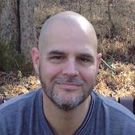
Ryan Scherle
Head of Platform Development
Ryan has over 30 years of experience designing and developing systems to manage collections of digital objects. He has been with Dryad since its founding, and has been involved with all aspects of the organization. He has a background in artificial intelligence research, and he believes that the best technology strikes a balance between anticipating what a user needs and allowing the user to remain in control. Ryan also manages technical development for the Covid Information Commons at the Northeast Big Data Innovation Hub.
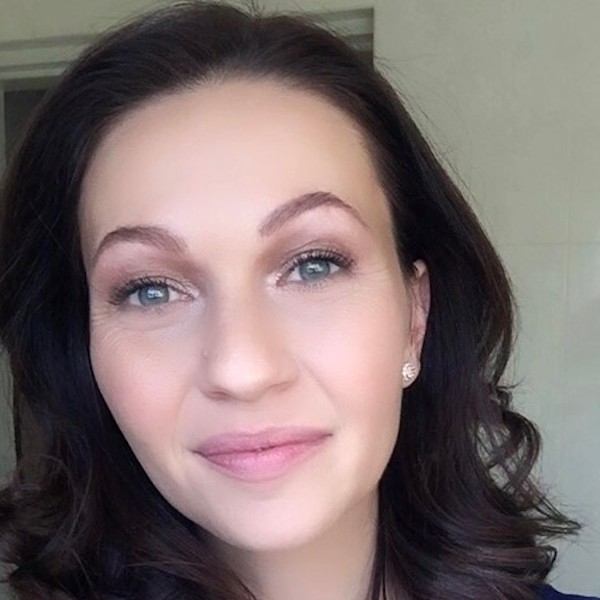
Angelica Del Sette
Administrative Assistant
Angelica is an Executive Assistant with over 15 years working at C-Suite level with experience in banking, pharmaceutical, and venture capital organisations with a particular focus on administration, project management, and MS Office 365. In South Africa, she was involved in implementing software across large organisations, workflow and process management and team administration. During her time in Italy she worked alongside political figures and entrepreneurs assisting with campaigns and business administration. She grew up in Johannesburg, South Africa, and has worked in the Netherlands, Italy and the UK.
Platform development team

Audrey Hamelers
Senior Software Developer
Audrey has many years of experience developing websites and digital repositories related to libraries and to scientific publishing, with previous roles in software development at Europe PMC, PubMed Central, and the University of Delaware Library. She holds a Master's in Library and Information Science from Drexel University. Audrey enjoys reading, traveling, and reading while traveling.
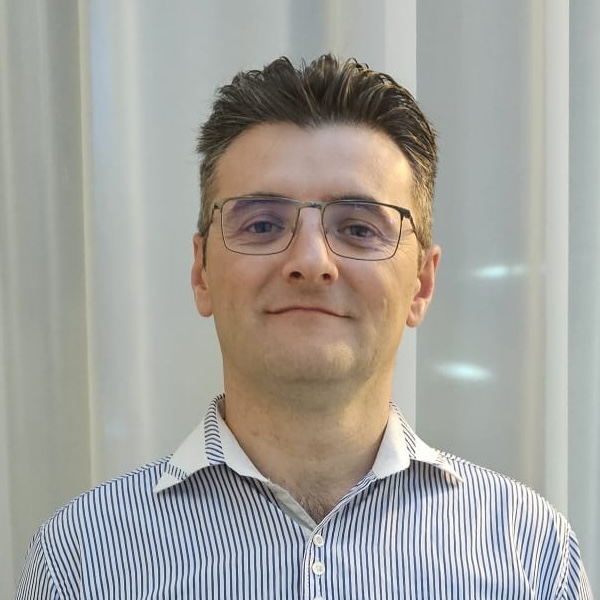
Alin Vetian
Senior Software Developer
Alin has a great experience developing web applications and other digital products. In his previous roles, he has successfully handled data integration from multiple sources, ensuring seamless data flow and consistency. With skills in implementing advanced data visualization techniques he helped transform complex datasets into clear, actionable insights.
Curation team

Laura Bowman
Senior Data Curator II
Laura has a B.S. and M.S. in Accounting from Penn State and worked as a public accountant for several years before transitioning to librarianship. She holds an MLIS from the University of Pittsburgh and has worked in academic and public librarianship, but found her niche in data librarianship. Laura is an avid reader, loves taking walks and exploring new places, and playing with her two cats.

Alex Hall
Data Curator
Alex is an interdisciplinary scientist with a B.S. in Animal Behavior and Ph.D. in Biology. He has published a dozen papers on topics such as parthenogenesis, artificial light at night, and image processing. He has been an advocate for open science and open data sharing practices, through, for example, BioImaging North America and Non-Clinical Tomography Users Research Network. Alex enjoys greyhound rescue, pottery, house music, birdwatching, and reptiles.
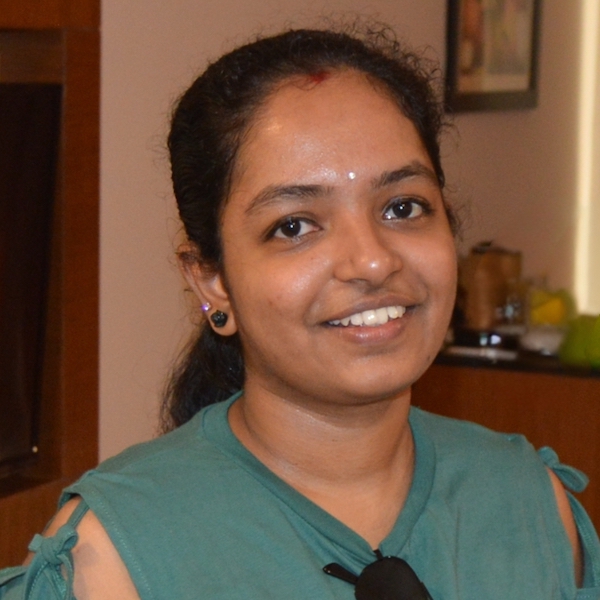
Kathiyayini Jayaraman
Data Curator
Kathiyayini holds an M.Sc. in Biochemistry. She has three years of experience as a curator of life science literature and has previously worked for two different companies as a research analyst and scientific analyst. In her role as a scientific analyst, Kathiyayini coordinated interviews, served as a trainer, and oversaw quality control. In her free time, she enjoys pencil drawing, painting, and listening to music.
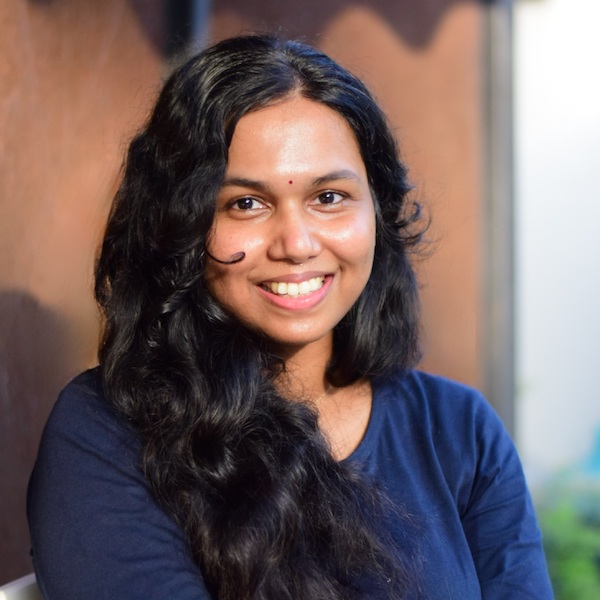
Kailasha Purushothaman
Data Curator
Kailasha has a diverse range of experiences and expertise in the fields of medical physics, teaching, biophysics imaging and copyediting. She earned her Master of Medical Physics degree from RMIT University and began her career as a Physicist at Peter MacCallum Cancer Center in Australia, where she gained valuable experience in radiation therapy. She has also taught medical physics and biomedical imaging to undergraduate students. In her free time, Kailasha enjoys pursuing creative outlets such as cooking and painting.
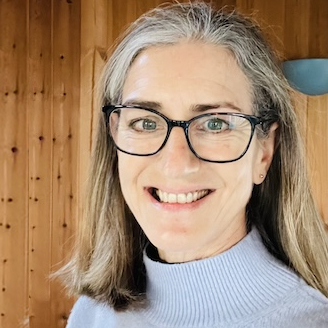
Mary Ann Tuli
Data Curator
Mary Ann studied Applied Molecular Biology at the University of Hull, UK. She began her biocuration career at the EMBL Database in Heidelberg, later working on the model organism database WormBase. She subsequently moved into scientific publishing as a Data Editor for GigaDB, the data repository supporting GigaScience Press journals. Outside of work, she is a keen and competitive runner and enjoys watching live theatre and ballet.
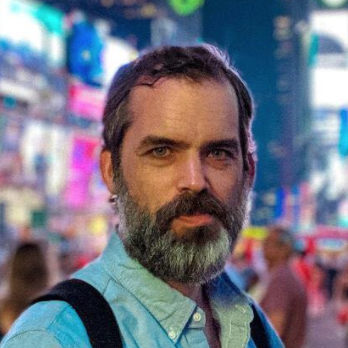
Jeremy Walter
Senior Data Curator I
Jeremy transitioned from a management role in English as a Second Language
education in Thailand to technical writing and training coordination roles on
various biology-driven projects in the United States. He recently repatriated
to California where he helps the UC Davis effort on the NIH Common Fund Data
Ecosystem.
Updated June 4, 2025
Dryad committees, advisory groups and task forces are appointed by the Board to support the healthy, transparent operation of the organization and the powerful realization of Dryad strategy. Community participation is warmly invited through semi-annual, open calls for application (For example). Follow us to get the latest.
Fundraising Advisory Group
- Barbara Ebert, German Federation for Biological Data e.V. (GFBio)
- Brooks Hanson, Retired, American Geophysical Union (AGU)
- Jason Williams, Cold Spring Harbor Laboratory DNA Learning Center
- Maria Guerreiro, Dryad
- Jen Gibson, Dryad
Strategic Advisory Taskforce
- Andrew Beckerman, University of Sheffield
- Andrea Chiarelli, Research Consulting
- Scott Edmunds, GigaScience
- Monica Granados, Creative Commons
- Ted Habermann, Metadata Game Changers
- Hilmar Lapp, Duke
- Adam Leary, Oxford University Press
- Helena Ledmyr, INCF
- Rory Macneil, Research Space
- Jenny Muilenburg, University of Washington Libraries
- Katherine (Katy) McNeill, Independent
- Ian Mulvany, BMJ
- John Wilbanks, Astera Institute
- Ryan Scherle, Dryad
- Jen Gibson, Dryad
Nominations and Elections Advisory Group
- Ian Mulvany, BMJ
- Devika Madali, Indian Statistical Institute
- Nicolás Palopoli, Universidad Nacional de Quilmes - CONICET & MetaDocencia
- Daniel Potter, UC Davis
- Jen Gibson, Dryad
Code of Conduct Committee
- Jenny Muilenburg, University of Washington Libraries
- Dan Potter, UC Davis
- Malvika Sharan, The Alan Turing Institute
- Jason Williams, Cold Spring Harbor Laboratory DNA Learning Center
- Jen Gibson, Dryad
Large Datasets Working Group
- Moira Downey, North Carolina State University
- Shannon Farrell, University of Minnesota
- Julien Brun, University of California Santa Barbara
- Nathan Gerth, University of Nevada Reno
- Matthew Goerg, Amazon
- Ann James, George Washington University
- Zhiwu Xie, University of California Riverside
Member Model Task Force
- Ali Andalibi, Charles R. Drew University
- Karl Benedict, Retired, University of New Mexico Libraries
- Vicky Johnson, John Wiley and Sons
- Joe Lucia, Temple University
- Angela R. Maranville, Greater Western Library Alliance (GWLA)
- Johan Nilsson, Nordic Society Oikos
- Rob O'Donnell, Rockefeller University Press
- Shawn Ross, Australian Research Data Commons (ARDC)
- Matt Wascavage, Alliance of Crop, Soil, and Environmental Science Societies (ACSESS)
- Jennifer Gibson, Dryad
- Maria Guerreiro, Dryad
Collaborations
Academic and research institutions, research funders, scholarly societies and publishers invest in Dryad for the curation, open sharing and reuse of research data in all fields. See our partner list and how to join us.
Dryad advocates for community-adopted standards for metadata and persistent identifiers in concert with DataCite, ORCID, and ROR.
We support the recommendations and implementation guidance of the Joint FORCE11 & COPE Research Data Publishing Ethics Working Group and the Joint Declaration on Data Citation Principles.
We are also pleased to partner with the following organizations and initiatives, for:
- Publishing workflow integration: Editorial Manager, eJournalPress, openRxiv
- Persistent identifiers for data publications: DataCite
- Standardized usage metrics for data: Make Data Count
- Data submission enhancements: Zenodo (Concurrent submission of software and supplemental information); Frictionless Data (Tabular data quality validation); rSpace (Electronic lab notebook integration)
- Single sign-on integration: InCommon
- Identity verification: VeriMe
- Dataset visibility: NLM Dataset Catalog, NIAID Data Ecosystem, NCBI LinkOut
- Presenting research data alongside associated research articles: PubMed Central (National Library of Medicine), Europe PMC
- Community engagement and standards development: Data Curation Network, Research Data Alliance (RDA), DataCite, Principles of Open Scholarly Infrastructure
- Data publishing and generalist repository alignment: National Institutes of Health Generalist Repository Ecosystem Initiative (GREI)
- Metadata enhancement: Metadata Game Changers, CEDAR
- Dataset curation and publication: Kriyadocs
- Accounting, finance, and human resources support: CxORE
This list is a work-in-progress. If you’d like to suggest an addition, please contact us.
Origins
Dryad was first conceived in a series of meetings in 2007, hosted alternately by the National Center for Ecological Analysis and Synthesis (NCEAS) in California (USA) and National Evolutionary Synthesis Center (NESCent) in North Carolina (USA). Our first platform for curating and openly publishing a wide breadth of data types, such as those associated with research in ecology and evolutionary biology, was launched in 2008 with support from a grant from the U.S. National Science Foundation.
The project was originally named DRIADE: The Digital Repository of Information and Data for Evolution – which was coincidentally also the name of a favorite local cafe. By the time the platform launched, the name had evolved to “Dryad,” which is easier to remember – frankly – and evokes positive associations with trees. It was important not to hard-code evolution research into what would become home for a wide-ranging scope of data but, with the shorter name, the founders did “coyly allude to phylogenies”.1
In the life of Dryad, outlined below, the introduction of the Joint Data Archiving Policy (JDAP) by a pioneering group of journals and scientific societies in 2011 is worth singling out. JDAP states, to start, that committing journals will require:
as a condition for publication, that data supporting the results in the paper should be archived in an appropriate public archive [...]. Data are important products of the scientific enterprise, and they should be preserved and usable for decades in the future.
The release of this statement was deeply formative in Dryad’s development and reflects a pioneering spirit that continues to drive us today.
Dryad’s timeline
- 2007
- National Evolutionary Synthesis Center (NESCent) (at the time, a collaboration of Duke University, with the University of North Carolina at Chapel Hill and North Carolina State—all USA) creates Dryad with a grant from the U.S. National Science Foundation
- 2008
- Dryad goes live at datadryad.org
- 2011
- The Joint Data Archiving Policy (JDAP) is released
- 2012
- Dryad incorporates as a U.S. 501(c)(3) non-profit
From 2018 to 2023, Dryad was supported by in-kind investment in product management, platform development, and grants management through a partnership with the California Digital Library (CDL).
In 2026, the Dryad platform represents over 65,000 data publications – the work of over 300,000 researchers in connection with over 100,000 international institutions and over 2,000 academic journals.
For the latest figures, read our Annual report.
